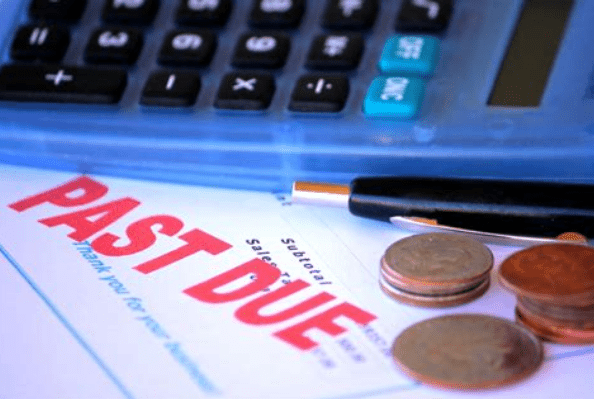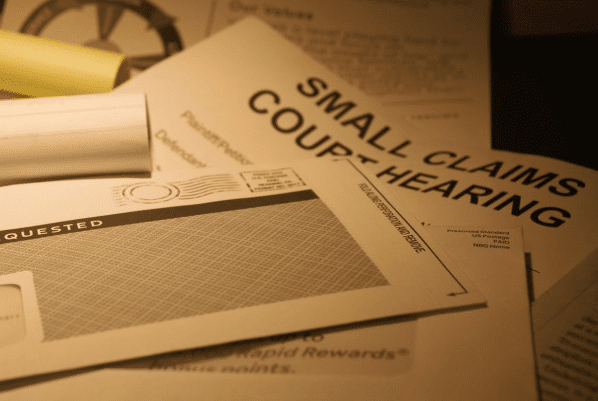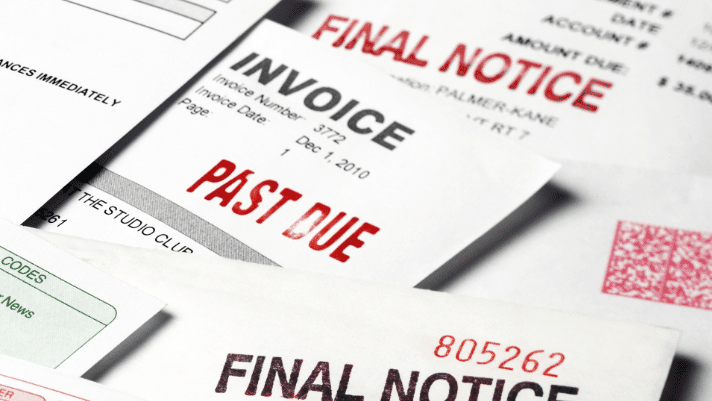In Rhode Island, you must act swiftly upon receiving a debt collection lawsuit, as you have just 20 days to respond. Crafting an Answer document is essential, addressing each claim made against you and asserting any affirmative defenses you may have. Once prepared, ensure to file your Answer with the court and provide a copy to the opposing attorney. ZumaZip offers a convenient solution, enabling you to draft and file a personalized Answer within minutes. Don’t let the stress of being sued by a debt collector overwhelm you.
ZumaZip offers a solution to alleviate the stress of constant collection calls and provides seamless guidance through the legal process.
Discovering that you’re facing a debt collection lawsuit can be incredibly stressful, especially when you’re already stretched thin financially. It’s natural to feel overwhelmed, especially considering the prospect of handling the lawsuit on your own without the assistance of an attorney.
However, ignoring the lawsuit won’t make it disappear and may only worsen your financial situation. Instead, taking proactive steps to respond is crucial.
If you’re dealing with a debt lawsuit in Rhode Island, navigating the process on your own is more manageable than you might think. In this article, we’ll walk you through the steps to fight back against debt collectors in Rhode Island, providing valuable information specific to the state, including deadlines, fees, and access to online forms for Rhode Island courts.
Let’s dive in and empower you to take control of your legal situation.
Respond to the lawsuit before the Rhode Island deadline
Rhode Island Rules of Civil Procedure Rule 12(a) states:
“(a) When Presented.
(1) A defendant shall serve an answer:
(A) Within twenty (20) days after the service of the summons, complaint, Language Assistance Notice, and all other required documents upon the defendant, unless the court directs otherwise when service of process is made pursuant to an order of court.”
In other words, you have 20 days to respond to a debt collection lawsuit in Rhode Island. If you don’t respond before the deadline, you run the risk of losing by default judgment.
Let’s explain.
A lawsuit begins when one party (the plaintiff) files a Summons and Complaint against the other party (you, the defendant). The Summons notifies you of the lawsuit, while the Complaint lists the specific claims against you.
Once the legal process is initiated, you’ll typically receive these documents via mail or in-person, often facilitated by the Rhode Island Constable Service. It’s essential to note that once you’re served, you have a limited window of just 20 days to respond to the Summons and Complaint.
Failing to respond within this timeframe can result in serious consequences. The plaintiff, whether it’s your original creditor or a third-party debt collection agency, may seek a default judgment from the court, essentially granting them victory in the lawsuit by default.
A default judgment empowers creditors and debt collectors to garnish your wages, effectively deducting money from your paycheck before it reaches you. This can exacerbate your financial struggles significantly. Thus, responding before the deadline is absolutely critical in defending yourself against debt collectors in Rhode Island.
Answer Filing Fees for Rhode Island
There is no fee to file an Answer to a debt lawsuit in Rhode Island. This is great news for you!
That being said, there are filing fees for other types of documents in civil cases. Check out the Rhode Island Court Fees schedule to learn more.
Rhode Island Answer to Summons Forms
ZumaZip’s Answer form is the easiest way to respond to a debt collection case in Rhode Island. All you have to do is respond to a few questions about your case, and ZumaZip’s software generates a customized Answer for you, which includes all the proper legal language and defenses to help you present a strong case.
If you prefer to do it on your own, you can use a form from the courts. Rhode Island courts offer an online form to fill in for Small Claims Notice of Suit – Answer. Small claims cases are handled in the District Court when the parties are claiming damages of $5,000 or less.
The jurisdiction of your case, whether it falls within the District Court or the Superior Court, is typically determined based on the amount of debt involved. If your debt ranges from $5,000 to $10,000, your case will likely be heard in the District Court, as it holds exclusive jurisdiction over civil actions with amounts in controversy under $10,000. For debts exceeding $10,000, your case may be escalated to the Superior Court.
The convenience is that you don’t need to determine the appropriate court for your case; it’s already specified in the Summons and Complaint served to you. However, the challenge arises in the absence of a standardized form for drafting and filing your Answer, particularly in District or Superior Court cases. That’s where ZumaZip comes in handy.
Keep reading to learn how to make an Answer.
Follow these steps to respond to a Rhode Island debt collection case
A lawsuit begins when the plaintiff files a Summons and Complaint against you. When you receive these documents, you have a limited time to reply. As we discussed above, this deadline to respond is 20 days in Rhode Island.
Responding to a lawsuit is probably much easier than you expect. All you need to do is follow the three steps below:
- Answer each issue of the Complaint.
- Assert your affirmative defenses.
- File the Answer with the court, and serve the plaintiff a copy.
Below we will go over each step in detail.
1. Answer each issue of the Complaint
Like we said, the Complaint document lists all the claims that your creditor or debt collector is making against you.
In your Answer, you have the opportunity to respond to each claim and refute anything you disagree with. You should list your answers in the same order as the claims. You can:
- Admit: This means “I Agree”
- Deny: This means “I disagree”
- Deny for lack of knowledge: This means “I don’t know”
Consider each paragraph/allegation and use the most appropriate response in your Answer document. It’s important to number your list of responses, so that it is clear which response goes with each allegation.
Note that most attorneys recommend that you deny as many claims as possible. This forces the plaintiff to prove each claim, and if they can’t, they might just drop the case altogether.
It’s also important to note that you don’t need to deny every allegation in order to win. It’s fine to admit to facts that are true, like your name or account number. The third response is for when you can’t verify something, for example, the debt collection company suing you may state that they are incorporated in Rhode Island. If you have no way to independently verify that claim, saying “I don’t know” as your response is perfectly fine.
ZumaZip makes it simple to respond the right way. Our Answer form includes a section where you can respond to each claim, and our software translates your responses into the proper legal language.
Let’s consider an example.
Example: Meet Jan, who found herself in a tight spot when LVNV Funding came knocking for an old credit card debt in Rhode Island. They insisted she owed $5,000, but Jan couldn’t remember the debt at all. Feeling overwhelmed, Jan turned to ZumaZip for help. With ZumaZip’s guidance, she crafted a thorough response, denying all the claims against her. ZumaZip ensured her Answer was filed promptly, well before Rhode Island’s 20-day deadline. And the good news? Just a few weeks later, Jan received word that LVNV Funding had dropped the case entirely. Another victory for Jan with ZumaZip by her side!
If your case is in Small Claims, you can use the Small Claims Answer form to fill out your responses. Make certain to check the box next to the court address listed on the Summons itself.
The first place on the form where you have room to explain in more detail is after you check the initial answer document, which gives you the prompt “I disagree with the claim of the Plaintiff(s) because:” Here you can list anything you take issues with—perhaps your name is spelled incorrectly, or the amount listed is incorrect, anything else along these lines.
There is also an opportunity for you to check a box indicating that you owe the debt but need more time to pay, and then explain the reasons for the same. This will allow for the opportunity to create a payment plan that works for both you and the creditor.
2. Assert you affirmative defenses
This next step gives you another chance to fight back, by asserting affirmative defenses. An affirmative defense is any reason why the party suing you does not have a case. You can use any and all affirmative defenses that apply to you.
Making the right affirmative defense the right way is easy with ZumaZip.
Below we will discuss some of the more common affirmative defenses we see in debt collection cases:
- Not your account: It could be that the account number listed in the Complaint isn’t yours. Perhaps you’ve been a victim of identity theft and someone else opened the account. If you have any documentation to support this defense (like a statement with your actual account number and/or name, or a police report you filed about the identity theft) you should reference it and include a copy in your Answer as an exhibit.
- Payment: If you already paid this debt, they can’t collect it again.
- Accord and satisfaction: perhaps you came to an agreement with the creditor to pay a lesser amount to satisfy the debt in full satisfaction. Again, reference and attach any supporting documentation such as bank records showing a cashed check or online payment, or any correspondence between you and the creditor regarding a lower payment.
- The debt was already discharged in a bankruptcy: If you previously filed a bankruptcy case and this debt was included and successfully discharged then the plaintiff cannot try to collect it through the Court. You are no longer legally responsible for a debt that has been discharged in bankruptcy.
- Statute of limitations has expired: A statute of limitations is a law that sets a deadline for legal action. We will discuss the Rhode Island statute of limitations on debt collection in more detail later in this article.
- You can’t confirm that the plaintiff holds the debt: There is every chance that the party suing you is not your original creditor. Usually creditors sell off uncollected debt to third-party debt collection companies after a period of time (minimum of 90 days) has passed for only a small percentage of the original debt. If the company suing you is not the original debt holder you can insist that they provide a paper trail to prove that they legally own this debt.
These are just a few of the many affirmative defenses you can use to present a strong case. Please note, however, that inability to pay the debt is not normally a legal defense to the debt.
Beyond affirmative defenses, you can also assert any counterclaims against the Plaintiff in your response. A counterclaim could be warranted if you can show that the creditor violated the Rhode Island Fair Debt Collection Practices Act, which offers protection to Rhode Island residents under the Federal Fair Debt Collection Practices Act and other consumer protection laws.
Please keep in mind that counterclaims can get very complicated, so if you believe you have a basis for one (or more) it’s in your best interest to consult an attorney. You should also note that the last fill-in portion on the Small Claims court form states that, if checked, you are waiving your right to appeal based on counterclaim only. Again, if you think you might have an argument that the act was violated, seeking legal assistance is your best route.
3. File the Answer with the court, and serve the plaintiff a copy
The final step is to file your Answer with the Court. You’d be amazed how many people complete the above steps and then forget to file their response. If that happens, then all the work you’ve put in is wasted.
Instead, make sure that you file your Answer with the Court within the 20 day timeframe. Here’s all you need to do to file your answer.
- Print off your Answer.
- Mail the original copy to the court.
- Mail a copy to the plaintiff’s attorney.
You should send all documents via USPS certified mail with a return receipt requested, which will serve as proof that your Answer was properly delivered.
Some courts have specific requirements for filing. They might only accept filing electronically, or you may have to include other forms with your Answer. ZumaZip has done the heavy lifting to determine your court’s filing requirements.
It’s never a bad idea to print an extra copy for your own records. If you’re using the Small Claims online form make sure to fill out the “Certificate of Service” portion at the end of the form.
ZumaZip files for you in all 50 states.
What is ZumaZip?
ZumaZip is your ally in battling debt collectors. With our platform, you can respond to debt lawsuits, correspond with collectors via letters, and even negotiate debt settlements.
Our Answer service guides you through each step via a user-friendly professional solutions, ensuring you cover all necessary details. Once you’ve completed your response, our team reviews your document and handles the filing process on your behalf, giving you peace of mind.
Statute of Limitations on Debt in Rhode Island
The statute of limitations serves as a legal time limit within which creditors or debt collectors can file a lawsuit to enforce payment of a debt. Once this period expires, they lose the right to pursue repayment through legal channels. It’s an important legal safeguard for debtors, ensuring they are not indefinitely subjected to debt collection efforts.
Under R.I. Gen. Laws § 9-1-13, it states:
“Except as otherwise specially provided, all civil actions shall be commenced within ten (10) years next after the cause of action shall accrue, and not after.”
This means that the statute of limitations on debt is 10 years in Rhode Island. This includes Rhode Island’s statute of limitations on credit card debt and medical debt, which are both 10 years.
Similarly, R.I. Gen. Laws § 9-1-17 states:
“The following actions shall be commenced and sued within twenty (20) years next after the cause of action shall accrue and not after: actions on contracts or liabilities under seal; and actions on judgments or decrees of any court of record of the United States, or of any state.”
This means that, if granted a judgment, creditors and debt collectors only have 20 years to take action based on that judgment. The table below further outlines the Rhode Island statute of limitations on different types of debt:
| Debt Type | Deadline |
|---|---|
| Credit Card | 10 years |
| Medical | 10 years |
| Auto Loan | 10 years |
| State Tax | 10 years |
| Mortgage | 10 years |
| Written contract | 10 years |
| Open contract | 10 years |
| Oral contract | 10 years |
| Judgment | 20 years |
| Findlaw |
Always, check the statute of limitations on your debt is crucial before taking any action. Making a payment on an expired debt can indeed reset the clock on the statute of limitations, giving debt collectors more leverage over you. It’s a tactic they might use to pressure you into paying.
If you’ve gone a significant amount of time without any activity on a debt account, like 10 years or more, and a debt collector contacts you about it, it’s essential to proceed with caution. You may indeed be legally off the hook due to the Rhode Island statute of limitations on debt.
Rhode Island debt collection laws protect you
The Rhode Island Fair Debt Collection Practices Act protect consumers, like you, from unfair and abusive debt collectors.
Under this law, there are several actions that debt collectors cannot take. Here’s a list of the most relevant Rhode Island debt collection laws:
- Debt collectors cannot call you before 8 a.m. or after 9 p.m. (R.I. Gen. Laws § 19-14.9-5(1)(a)).
- If you have hired an attorney, debt collectors must make all communications through them (R.I. Gen. Laws § 19-14.9-5(1)(b)).
- Debt collectors cannot call you at your workplace if your employer prohibits such communications (R.I. Gen. Laws § 19-14.9-5(1)(c)).
- Debt collectors cannot discuss your debt with certain family members or your friends (R.I. Gen. Laws § 19-14.9-5(2)).
- If you have already requested not to be contacted by a debt collector, they can only reach out again to inform you that they are ceasing collection efforts or planning to sue you (R.I. Gen. Laws § 19-14.9-5(3)).
- Debt collectors cannot use any threatening, obscene, or profane language when communicating with you (R.I. Gen. Laws § 19-14.9-6).
- Debt collectors cannot threaten to sell your debt to coerce you to pay it off (R.I. Gen. Laws § 19-14.9-6).
- Debt collectors cannot call you constantly with the intent to annoy you (R.I. Gen. Laws § 19-14.9-6).
- Debt collectors must disclose who they are and where they are calling from whenever they contact you (R.I. Gen. Laws § 19-14.9-6).
- Debt collectors cannot misrepresent who they are in any way (R.I. Gen. Laws § 19-14.9-7).
- Debt collectors cannot utilize any unfair practice, as listed under R.I. Gen. Laws § 19-14.9-8, to collect a debt. This includes publishing information about the consumer and their debt, threatening legal action they cannot take, communicating about a debt via postcard, and more.
- Debt collectors must validate a debt within five days of initially contacting a consumer about it (R.I. Gen. Laws § 19-14.9-9).
Knowing these laws can help you protect yourself from abusive debt collectors. The Fair Debt Collection Practices Act, a federal law, also outlines other debt collection laws that can help you defend yourself.
Rhode Island legal aid organizations can help you
Every state has a number of organizations, often government-funded, that provide free legal services to people who cannot otherwise afford to hire their own legal assistance. These below Rhode Island resources can be good place to start:
- Rhode Island Legal Services
- Help RI Law: Rhode Island Legal Services
- Pro Bono Volunteer Law Program
- Rhode Island Bar Association Volunteer Lawyer Program
Find Rhode Island court locations
Key Takeaways
So, in short, here’s the review on how to answer a summons for debt collection in Rhode Island.
Make certain you know the deadline and complete the process before it expires. Rhode Island debt collection regulations allow 20 days to file your response.
Use the proper Rhode Island Answer form/format, or ZumaZip’s Answer form, to draft your response. When you fill out the form complete the following three steps:
- Answer each issue in the complaint.
- Assert any and all of your affirmative defenses.
- File and serve the Answer with the Court and the plaintiff’s attorney.
Finally, note that the statute of limitations on debt is 10 years in Rhode Island. So, if your creditor or debt collector is trying to sue you for a debt that is more than 10 years old, you have a very strong defense that will likely win you the case.
What is ZumaZip?
ZumaZip is a convenient solution designed to streamline your response to a debt collection lawsuit. Here’s a breakdown of what you can expect when you use ZumaZip:
Firstly, you’ll access our user-friendly web application, which guides you through the process step by step. You’ll be prompted to answer a series of questions related to your specific situation. Once you’ve completed the questionnaire, you have the option to either print out the finalized forms and mail them to the appropriate courts yourself, or you can opt to utilize ZumaZip’s services to file them on your behalf. Additionally, if you choose this option, an attorney will review your document for added peace of mind.
If you’re seeking guidance on how to effectively respond to a debt collection lawsuit, ZumaZip can provide the assistance you need. Feel free to explore our FAQs for more information on what ZumaZip has to offer.
What if I haven’t been sued yet?
If you’ve only received a collections notice, but not a lawsuit, the best way to respond is with a Debt Validation Letter. When a debt collector contacts you in any way, whether it’s by phone or mail, you can respond by formally requesting a debt validation with a Debt Validation Letter . This letter notifies the collector that you dispute the debt and forces them to provide proof you owe the debt. They can’t call you or continue collecting until they provide validation of the debt. This flowchart shows how you can use a Debt Validation Letter to win.
Get started with a Debt Validation Letter here.
How to Answer a Summons for debt collection in all 50 states
Here’s a list of guides on how to respond to a debt collection lawsuit in each state:
- Alabama
- Alaska
- Arizona
- Arkansas
- California
- Colorado
- Connecticut
- Delaware
- Florida
- Georgia
- Hawaii
- Idaho
- Illinois
- Indiana
- Iowa
- Kansas
- Kentucky
- Louisiana
- Maine
- Maryland
- Massachusetts
- Michigan
- Minnesota
- Mississippi
- Missouri
- Montana
- Nebraska
- Nevada
- New Hampshire
- New Jersey
- New Mexico
- New York
- North Carolina
- North Dakota
- Ohio
- Oklahoma
- Oregon
- Pennsylvania
- Rhode Island
- South Carolina
- South Dakota
- Tennessee
- Texas
- Utah
- Vermont; Vermont (Small Claims court)
- Virginia
- Washington
- West Virginia
- Wisconsin
- Wyoming
Guides on how to beat every debt collector
Hey there! Facing off against a debt collector can feel like a daunting challenge, but fear not! We’re here to help you navigate through it all with our handy guides designed to assist you in beating every debt collector you encounter. Whether you’re facing a new lawsuit or dealing with a persistent collector, we’ve got your back. Stay positive, stay informed, and let’s tackle this together!
- Absolute Resolutions Investments LLC
- Accredited Collection Services
- Alliance One
- Amcol Clmbia
- American Recovery Service
- Asset Acceptance LLC
- Asset Recovery Solutions
- Associated Credit Services
- Autovest LLC
- Cach LLC
- Cavalry SPV I LLC
- Cerastes LLC
- Colinfobur
- Covington Credit
- Crown Asset Management
- CTC Debt Collector
- Cypress Financial Recoveries
- Delanor Kemper & Associates
- Eagle Loan of Ohio
- Educap
- Estate Information Services
- FIA Card Services
- Forster & Garbus
- Freshview Solutions
- Fulton Friedman & Gullace LLP
- Harvest Credit Management
- Howard Lee Schiff
- Hudson & Keyse LLC
- Integras Capital Recovery LLC
- Javitch Block
- Jefferson Capital Systems LLC
- LVNV Funding
- Mannbracken
- Mariner Finance
- Medicredit
- Michael J Adams PC
- Michael J Scott
- Midland Funding LLC
- Mullooly, Jeffrey, Rooney & Flynn
- Mountain Land Collections
- MRS Associates
- National Collegiate Trust
- Nationstar Foreclosure
- Northstar Capital Acquisition
- NCEP LLC
- NRC Collection Agency
- OneMain Financial
- Palisades Collection LLC
- Pallida LLC
- Paragon Revenue Group
- Pinnacle Collections Agency
- PMAB LLC
- Portfolio Recovery Associates
- Provest Law
- PYOD LLC
- Reunion Student Loan Finance Corporation
- Revenue Group
- Regents and Associates
- RSIEH
- Salander Enterprises LLC
- Second Round Sub LLC
- Security Credit Services
- Sherman Financial Group
- Suttell and Hammer
- T-Mobile
- Transworld Systems
- Tulsa Teachers Credit Union
- UCB Collection
- Velo Law Office
- Velocity Investments
- Waypoint Resource Group
- Weinberg and Associates
- Wolpoff & Abramson
Settle your medical debt
Having a health challenge is stressful, but dealing medical debt on top of it is overwhelming. Here are some resources on how to manage medical debt.
- Am I Responsible for My Spouse’s Medical Debt?
- Do I Need a Lawyer for Medical Bills?
- Do I Need a Lawyer to Fight Medical Bill Debt?
- Does Bankruptcy Clear Medical Debt?
- How Much Do Collection Agencies Pay for Medical Debt?
- How to Find Medical Debt Forgiveness Programs
- Is There a Statute of Limitations on Medical Bills?
- Medical Debt Statute of Limitations by State
- Summoned to Court for Medical Bills — What Do I Do?
- Summoned to Court for Medical Bills? What to Do Next
Stop calls from Debt Collectors
Do you keep getting calls from an unknown number, only to realize that it’s a debt collector on the other line? If you’ve been called by any of the following numbers, chances are you have collectors coming after you, and we’ll tell you how to stop them.



































